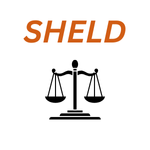Introduction
The relationship between law, corruption, and economic development is a central theme in political economy and legal studies. Corruption undermines trust in institutions, distorts markets, and hinders sustainable growth. Laws, when effectively designed and enforced, act as critical tools in curbing corruption and fostering economic development. Yet, weak or poorly enforced legal systems can enable corruption, creating a vicious cycle of underdevelopment. This article explores the causal links between legal institutions, corruption, and economic outcomes, highlighting how legal frameworks can both prevent and perpetuate corruption.
Understanding Corruption in Economic Context
- Definition
Corruption broadly refers to the abuse of public or private power for personal gain. It includes bribery, embezzlement, favoritism, nepotism, and regulatory capture. - Economic Costs
- Misallocation of Resources: Public funds diverted to private pockets reduce investment in infrastructure and public goods.
- Increased Transaction Costs: Bribes function as hidden taxes that deter investment.
- Market Distortion: Corruption privileges politically connected firms over efficient competitors.
- Institutional Weakness
High levels of corruption are often correlated with weak legal systems, where enforcement is selective, and accountability is limited.
Law as a Mechanism Against Corruption
- Rule of Law
A strong legal system provides predictability and accountability, essential for reducing opportunities for corruption. - Anti-Corruption Legislation
Laws that criminalize bribery, mandate transparency, and protect whistleblowers deter corrupt practices. - Judicial Independence
Independent courts are vital for enforcing anti-corruption measures and preventing political interference. - Transparency and Accountability Measures
Freedom of information laws, open contracting systems, and financial disclosures create transparency that reduces corruption opportunities.
Corruption as a Barrier to Economic Development
- Investment Climate
Foreign and domestic investors avoid corrupt environments due to unpredictability and inflated costs. - Public Goods Provision
Corruption diverts resources away from essential infrastructure, healthcare, and education, hindering long-term development. - Inequality and Social Trust
Corruption disproportionately affects the poor, erodes trust in institutions, and exacerbates inequality. - Innovation and Entrepreneurship
When business success depends on political connections rather than efficiency, innovation is stifled.
The Legal-Corruption-Development Nexus
The causal links between law, corruption, and economic development can be understood through three main dynamics:
- Law as a Preventative Tool
- Strong, well-enforced laws deter corrupt practices and promote economic efficiency.
- Example: Singapore’s rigorous anti-corruption framework has contributed to its rise as a global financial hub.
- Law as an Enabler of Corruption
- Weak or selectively applied laws foster corruption, deterring investment and growth.
- Example: Countries with weak property rights and poor contract enforcement often experience persistent underdevelopment.
- Feedback Loop Between Corruption and Legal Systems
- Corruption weakens the enforcement of laws, which in turn perpetuates corruption.
- Example: In fragile states, corrupt elites may deliberately weaken legal institutions to maintain control.
Case Studies
- Singapore
Strong anti-corruption agencies, independent judiciary, and strict enforcement have made Singapore one of the least corrupt countries, fostering rapid economic growth. - Nigeria
Despite abundant natural resources, weak legal enforcement and entrenched corruption have hindered economic development. - Scandinavian Countries
Robust legal frameworks, transparency, and low corruption levels have contributed to high levels of economic prosperity and trust in government.
Policy Considerations
- Strengthening Institutions
Effective anti-corruption requires building independent and transparent institutions with strong enforcement capacity. - International Cooperation
Corruption often transcends borders, necessitating global frameworks like the UN Convention against Corruption (UNCAC). - Civil Society and Media
An active civil society and free press play essential roles in exposing corruption and pressuring governments to act. - Technology and E-Governance
Digital platforms reduce human discretion in public services, minimizing opportunities for bribery. - Targeted Legal Reforms
Reforms must focus on specific vulnerabilities, such as public procurement, licensing, and tax administration.
Challenges and Limitations
- Political Will
Anti-corruption laws are ineffective without political commitment to enforce them. - Cultural Norms
In some societies, corruption is normalized, making legal enforcement alone insufficient. - Capacity Constraints
Low-income countries may lack the resources to implement and enforce robust anti-corruption laws.
Conclusion
The causal links between law, corruption, and economic development are profound and mutually reinforcing. Effective legal systems curb corruption, fostering an environment conducive to investment, innovation, and equitable growth. Conversely, weak laws and poor enforcement entrench corruption, undermining development. The key to breaking this cycle lies in building strong, transparent, and independent legal institutions, supported by political will, civil society, and international cooperation. Ultimately, the fight against corruption is not only a legal or economic issue but also a moral imperative essential for sustainable development.




